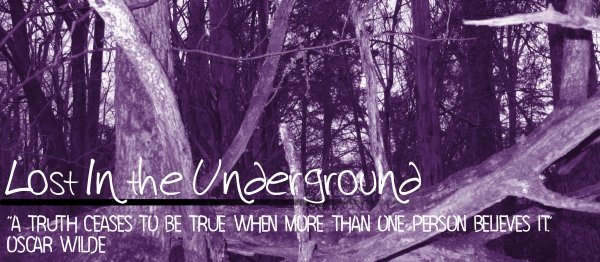So, the Church of Christ discussion boards I've been following have dissolved into utter chaos. I feel kinda bad for the several very thoughtful people who were trying to get actual discussions/debates going. I actually deleted my membership a week or two ago, because I decided I was getting nowhere very fast, and didn't feel up for another round of defending myself against accusations that I have never read the Bible. I nearly replied with something along the lines of "I've been spiritually beaten black and blue with the Bible, and placed in the top ten of regional Bible Bowl competitions six years in a row, I happen to know my stuff, thank you very much." Instead, I explained that it was somewhat difficult to analyze the usage of a single euphemism in two different narratives without actually reading said narratives a time or two, and later that I thought ad hominem attacks were cheap. Granted, I'm still watching from the sidelines, but I'm just not in the mood to play. But all of that is beside the point, and just more ramblings in the category of Metra likes to poke bugs with sticks.
Several people have expressed concerns that there's too much focus on intra-church practice and not enough on what the church can do in the world. A new topic was started explaining the poster's frustration with the emphasis on correct theology and asking people to respond with what God has done lately in their lives. I thought about rejoining to say something like: God smacked me upside the head and said, "These nutters don't speak for me -- I'm bigger than you or they will ever comprehend." Then, I decided that wouldn't be a productive use of my time, and I was better off reflecting on why theology matters.
Now, I don't think having 100% correct theology saves a person, or is even possible. I have a sort of Animal Farm outlook on theology (and philosophy): All theologies are wrong, but some are more wrong than others. And of course, my standards by which I evaluate theologies are subjective, but one has to work from somewhere. I'm interested in not reducing the Divine into a book and not excluding persons because they don't fit into some mold or another.
My grandfather is always telling me that I just have to be patient and let things change over time. I can't expect the CofC start letting women preach overnight. But, preaching isn't the real issue -- preaching is only symbolic. What is actually at stake is personhood. Not having the pulpit does relatively little damage to me in and of itself -- the accompanying message that I was defective because of something entirely out of my control -- my sex -- was incredibly damaging, even with the mitigating circumstances of a spinster great-aunt who was convinced that there was nothing a man could do that a woman in sensible shoes couldn't manage and a father who commented that maybe one day we'll go to a church were they let women lead songs (the actual incident was song-leading, not preaching). No, no, I was a impure, dirty, weaker vessel, who could not be suffered to speak -- and all the more dirty because I let it be known that I thought something was wrong with that idea. So, yes, the praxis in the mainstream CofC and a number of other forms of Christianity (and other religions) of restricting the ability of female-bodied individuals from fully participating within the life of the community is wrong. The theology behind it is worse and dehumanizing. Maybe not the most dehumanizing ever -- but it is an affront to personhood of roughly fifty percent of humans. Especially among groups claiming a "priesthood of all believers."
However, theoretically (and I'm quite sure in practice, as well) a church could practice good works while restricting women to the most marginal of roles within the community. And, it could be argued that the nutters like me demanding that we have the right to full participation distracts the church and it's resources from carrying out certain good works. Or that we are somehow causing discord where they should be unity. But if a church's mission is unity in Christ, how can they claim any sort of unity when persons are excluded based on genitalia or sexual preference or listening to music.
See the point is not that women can't preach, and the point is not that many churches won't marry same-sex couples; however, the point is that these practices reveal that the many churches have placed themselves in the business of determining who is and is not a full person and thus eligible for all the rights and responsibilities of membership within the community.
I'm not sure if any of that made any sense at all.
Subscribe to:
Comments (Atom)

